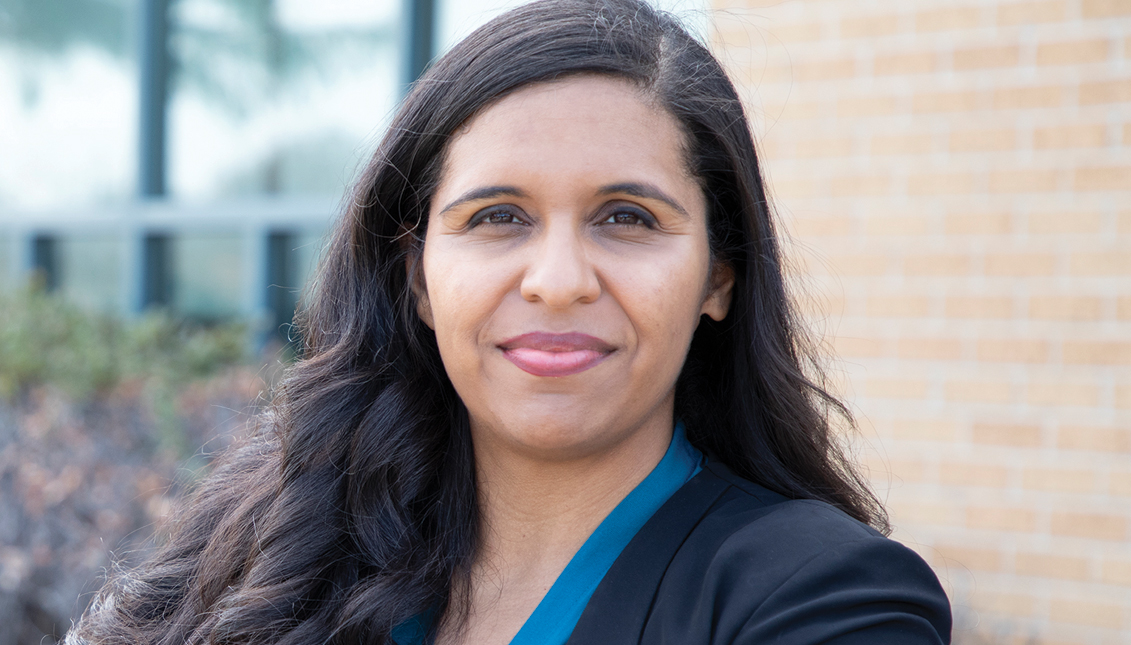
Incoming history: Candace Valenzuela
Valenzuela once lived in a kiddie pool outside a gas station. Now, she's running for Congress to represent families with stories like hers.
It’s been heard before: Candace Valenzuela, if elected, could make history in November by becoming the first Black Latina elected to Congress in United States History.
But that’s not why she’s running.
Yes, history is on the brink in Texas. Still, her run signals a larger movement within the country’s largest battleground state: one of the powerful women breaking barriers to represent their communities, and a story of tremendous odds.
Valenzuela’s great-grandfather came to the U.S. from Durango, Mexico, and fought in World War I. Her grandfathers fought in World War II, and her parents met at a military base in El Paso, Texas.
“I am running because my family’s been able to realize the American Dream in many ways,” Valenzuela told AL DÍA.
Her run is her chance to make sure that the public resources that helped her navigate her childhood are still there to work for others.
Early on, Valenzuela had to navigate a lot of adversity.
“Things didn’t always go well,” she said, “and at one point my mother, brother and I ended up homeless, fleeing in the night, and we bounced around from place to place, living in a homeless shelter, in different houses, and at one point in a kiddie pool outside of a gas station with very little to our names.”
The family survived on government programs.
“We were fed through food stamps, we received public housing, and public education became a home for my brother and me,” she said.
That experience is why government-funded programs are at the forefront of Valenzuela’s campaign. She knows firsthand how vital they can be to those in her early situation. They can be a lifeline and a starting point.
Valenzuela saw the value in these opportunities, and she’s not going to allow their neglect.

She knows what it’s like to graduate into a recession, something 2020 college graduates have to deal with now because of the coronavirus pandemic.
Even after becoming the first in her family to attend college, after getting a full-ride to a prestigious college for government, graduating into a recession meant that a lot of the jobs Valenzuela had considered applying for were gone, and she had to figure out how to support herself.
“And so I took a job, another job, and another job — doing many different things,” she said.
She learned from that experience the value of her public school education over private, charter, and homeschooling options.
“I took that information with me when I moved back to Texas, and I felt empowered to run for school board,” said Valenzuela.
When Valenzuela made that first decision to run for local office, people told her she couldn’t do it.
“I wasn’t the right height at one point, or I couldn’t raise the money, or remove an entrenched incumbent,” said Valenzuela. “But I thought to myself, the only thing I can do is call attention to issues that families are facing, that the teachers are facing, then I’ll have done my job.”
She defied all preconceived notions of who she was.
With her one-and-a-half-year-old in tow, she canvassed within her community, knocking on doors, taking breaks to nurse her son, or handing him off to her supportive husband to attend candidate forums.
“And before we knew it, working as a family, I defeated an 18-year incumbent with a back in the Republican establishment,” said Valenzuela
Through her win, she was able to get teachers pay raises, help establish fine arts and STEM academies in elementary schools, and even brought students the technology needed to stay connected during a global pandemic.
“This administration doesn’t understand the importance of delivering for families in communities like mine, and that’s why I’m running,” said Valenzuela.

Just like when Valenzuela ran for school board, she said people had her doubts about her Congressional run. Still, she would always leave her mark wherever she went.
“There were times when I left discussions, or I’d leave town halls, and someone would linger behind and say, ‘you’re really smart,’” Valenzuela repeated, surprised.
“It was a compliment,” she said, “but I spent a lot of time trying to break through people’s preconceived notions. Whereas candidates with fewer of those restrictions can just focus on campaigning.”
She had to convince people she could represent and govern her community, even as arguably the most politically experienced candidate in the race. Still, Valenzuela said she faced more doubt from critics.
“‘Oh well, you won the school board… isn’t it a little bit much to run for Congress?’” was a typical comment.
Valenzuela also heard questions about her presence in her children’s lives.
“‘Well, I don’t know if I can vote for you because I’m worried about your children,’” was one. “And that’s really insulting to my family, particularly my husband, who’s incredible. And it’s also particularly insulting when we have so many presidents who’ve gotten into office with young children, babies even. We have so many men at every level of office with very small children, and nobody asks, if [they] were giving enough support to their wives.”
But even with the critics, some people saw Valenzuela’s potential before she did.
“It was absolutely neither a goal I had nor something I wanted to do while I was on the school board. None of those things. It was crazy.” Valenzuela said, citing her happiness at representing 26,000 students in her community, their families, and school employees.
RELATED CONTENT
In that role, however, she heard of problems that were beyond her reach to help. Families in Valenzuela’s district struggled with healthcare, low wages, and housing insecurity.
“Our families were not getting the support they needed for their kids to succeed,” she said.
One day, a month before her next son was due, Valenzuela went out to lunch for some friends and was peppered by them about the prospect of running for higher office.
“You know this district is very diverse. It could be brought home by a woman of color,” said one of her friends.
She agreed but kept eating at the time, not thinking twice about their suggestion. Her friends had stopped to stare at her silence on the possibility.
“‘No. No! Are you crazy? Are you seeing this?’” Valenzuela said, motioning towards her baby bump.
But after her friends’ prodding, Valenzuela left lunch that day promising to consider the idea of running for Congress. When she consulted her husband that night, he was all for it.
“‘That makes sense. They’re right,’” he said to her.
Valenzuela knew that with their three-year-old and a baby due in a month, her husband would be handling the childcare brunt, but she had his support.
And upon garnering support from other local officials, Valenzuela soon became a Congressional candidate to represent Texas’s 24th district.
Despite her candidacy, many other Democrats came to the district from outside, seeing it an easy flip for the Party.
“What bothered me about that was I knew the potential of the district, I knew the potential of a good candidate also helping the down-ballot races too,” said Valenzuela. “And if that was going to happen, it was only going to happen if we had somebody who really understood the needs of the district, that understood the needs of the families.”

Now, Valenzuela finds herself part of a blue wave fighting to flip states across the country, and with the recent elections of Latina leaders coming out of Texas, things aren't the same as they were in 2016.
“I think four years ago, and even before that, Texans, regardless of their political affiliation, had this sort of resignation that people only voted a certain way,” she said. “After 2016, after seeing what was happening across the country, that resignation was no longer good enough for Texans.”
Valenzuela herself was part of that initial blue wave back then when she got elected to the school board.
“Then, over a year later, you see our first-ever Tejanas — the first Latinas coming out of Texas. You’re seeing women — people of color, folks that never thought they’d have somebody to vote for suddenly running for Congress, or suddenly running for office and winning.”
Valenzuela said the reason her campaign was able to gain enough momentum to win so decisively in the primary election came down to community outreach, having a diverse staff, and getting young voices involved.
Representation is no small thing. And as Candace is on the verge of making history because of it, it goes beyond the visuals.
“That’s critical to any campaign right now, when you have a diverse population of folks, is having folks, from their communities, speaking to their communities about this process,” she said.
That’s what it will come down to in November.











LEAVE A COMMENT: